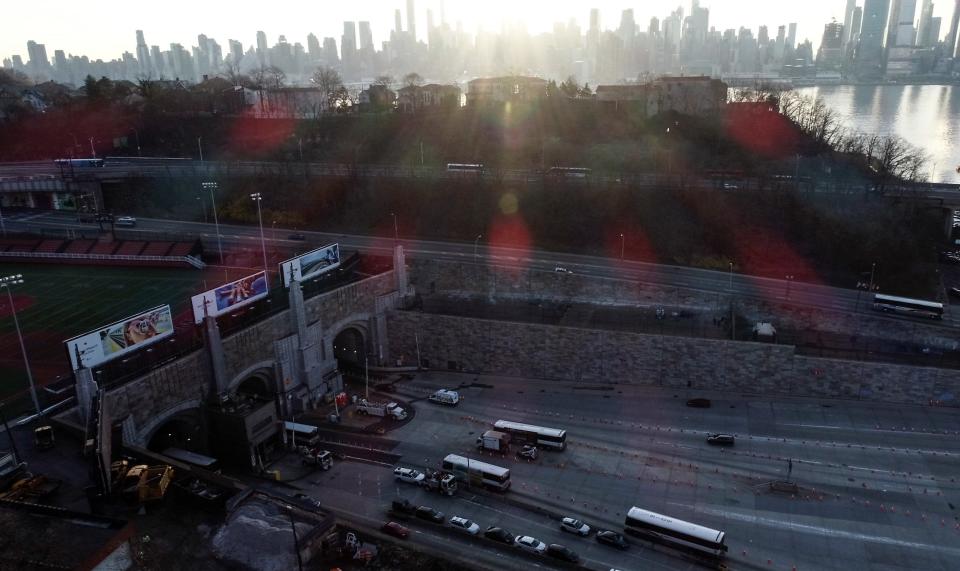These North Jersey drivers are the ones most concerned about NY's congestion pricing plan
Stagehands, entertainers, musicians and those who work nontraditional hours are the New Jerseyans most concerned about the impacts of congestion pricing, since they have fewer public transportation options overnight.
A number of New Jerseyans responded to a callout by NorthJersey.com to share their views on the new tolling program, which could roll out as soon as spring 2024. Designed to reduce congestion, improve air quality and raise money for the Metropolitan Transportation Authority’s capital program, congestion pricing will charge drivers a fee to enter Manhattan streets below 60th Street.
Frank Luzzi, a Paramus resident, has been working in Manhattan for almost 37 years as a stagehand for concerts and shows. His shift hours are sometimes 2 a.m. to 2 p.m., or 2 p.m. to 2 a.m. — which means fewer public transportation choices.
“The last buses out of the Port Authority to New Jersey are between 12:30 a.m. and 1 a.m. I believe it's the same for the trains" out of New York Penn Station, Luzzi said. “It's already more expensive for myself and other shift workers, because we have no other choice but to drive, and have the added expense of parking, which, by the way, will surely go up as more and more drivers will have to park north" of 60th Street.
According to NJ Transit: "At the [Port Authority Bus Terminal] we are 24/7. There is no hour, or even half-hour, where we do not have bus service running on various routes," but the last trains out of Penn Station are between 12:30 and 1:30 a.m., with the next train arrivals just before 6 a.m.
Earnings eroded by gas, tolls and parking already
Tim Horner usually is paid about $100 for a gig in the city as a percussionist. Those dollars get eaten up by gas, tolls and parking costs — and he’ll make even less with an additional congestion charge, he said.
More: Manhattan congestion pricing scenarios would give credits for tunnels, but not GW Bridge
More: Murphy launches lawsuit against feds over NY congestion pricing, rebuking review process
“I pay already $13 to $18 for a tunnel or bridge, tolls on the turnpike and gas. Sometimes I'm forced to park in a garage for $15 to $40 because all the street parking is gone. Often, I get home with $50 profit or less and now I must pay $26 in congestion pricing? Why work, why come to NY?” Horner wrote.

Union City resident Eric Grossman travels through the Lincoln Tunnel to pick up his daughter after her performance at the Metropolitan Opera ends late. “Adding a congestion toll is unacceptable,” he said.
“We would love to get to New York City in a more environmentally friendly manner like riding a bike or walking but unfortunately the Lincoln Tunnel is the only alternative. There should be more alternatives,” Grossman said.
Suit by New Jersey
Gov. Phil Murphy has pushed back hard against congestion pricing, suing the Federal Highway Administration earlier this year for greenlighting the program without requiring a more in-depth environmental review.
The Traffic Mobility Review Board — the group of New Yorkers appointed to recommend how the tolling program will work and what discounts and exemptions might be offered to certain groups of drivers — released four potential tolling scenarios earlier this month.
All four options proposed discounts overnight when congestion is significantly reduced and credits for drivers who already pay tolls at the Lincoln and Holland tunnels.
The board is expected to make a recommendation later this month.
This article originally appeared on NorthJersey.com: These NJ drivers are most concerned about NY congestion pricing

